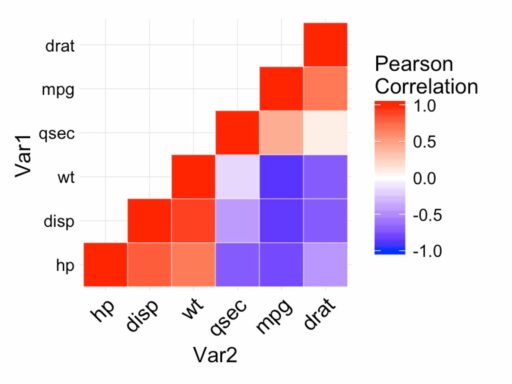Table of Contents
Domino Data Lab has emerged as a transformative force in the realm of data science, offering tools and platforms that enable data scientists to unlock the full potential of their data. By streamlining the process from prototyping to deployment, fostering collaboration, and promoting data literacy, Domino Data Lab empowers organizations to harness the power of data science for strategic advantage. This article delves into the various facets of how Domino Data Lab is shaping the future of data science, through strategic roles, advancing decision-making, impacting workflows, scalability in education, and real-world case studies.
Key Takeaways
- Domino Data Lab significantly accelerates data science success by facilitating rapid prototyping, enhancing team collaboration, and streamlining deployment.
- By advancing data literacy and decision-making, Domino Data Lab enables organizations to leverage data for innovation and improved business outcomes.
- Domino Data Lab optimizes data science workflows through automation, self-service analytics, and securing collaborative environments.
- Educational initiatives powered by Domino Data Lab are crucial for training the next generation of data scientists and bridging the gap between academia and industry.
- Case studies demonstrate Domino Data Lab’s ability to transform complex data challenges, such as multimillion-row home value analysis, and empower teams with self-serve deployment capabilities.
The Strategic Role of Domino Data Lab in Data Science Success


Facilitating Rapid Prototyping and Iteration
In the fast-paced world of data science, rapid prototyping and iteration are key to staying ahead. Domino Data Lab accelerates this process by providing a unified platform where data scientists can quickly build and test models. This agility is crucial for adapting to new data insights and evolving market demands.
By reducing the friction between idea conception and model validation, Domino Data Lab ensures that data science teams can iterate at the speed of thought.
The platform’s ability to handle various data science languages and tools under one roof simplifies the workflow. Here’s how Domino streamlines the process:
- Seamless integration with popular data science languages and frameworks
- Easy access to scalable compute resources
- Version control for experiments and models
- Collaboration features for sharing insights and progress
These features collectively foster an environment where prototyping is not just fast, but also efficient and collaborative.
Enhancing Collaboration Among Data Science Teams
In the dynamic field of data science, collaboration is key to streamlining workflows and accelerating innovation. Domino Data Lab empowers teams by breaking down silos between data scientists and ML engineers, fostering an environment where models can be shared, published, and registered with ease. This seamless integration not only enhances efficiency but also reduces frustration and leads to quicker deployment.
By enabling data science teams to run Python code automatically, Domino Data Lab facilitates a self-serving data pipeline development that is crucial for agile operations. Education First’s data platform team exemplifies this approach, having unlocked their data science team’s potential by adopting such practices.
The table below highlights the benefits of enhanced collaboration facilitated by Domino Data Lab:
| Benefit | Description |
|---|---|
| Rapid Prototyping | Allows for quick iteration and testing of models. |
| Streamlined Handoff | Simplifies the transition from development to production. |
| Self-Serve Deployment | Empowers teams to deploy models without waiting for data engineering teams. |
By integrating these collaborative features, Domino Data Lab ensures that data science teams can focus on what they do best—extracting insights and driving data-driven decisions.
Streamlining the Path from Development to Deployment
In the dynamic field of data science, the transition from model development to deployment is a critical phase. Domino Data Lab streamlines this process, ensuring that models built by data scientists can be easily shared, published, and registered to the production system of choice. This seamless handoff between data scientists and ML engineers accelerates the time-to-production and reduces the frustration associated with working in siloed environments.
By enabling data science teams to run Python code automatically, Domino Data Lab empowers them to take control of their data pipelines. This self-service approach is pivotal for teams who seek to iterate rapidly without being bottlenecked by data engineering dependencies.
The benefits of this streamlined approach include:
- Reduced time-to-deployment: Models reach production faster, providing timely insights.
- Enhanced collaboration: Clear handoff processes between data scientists and ML engineers.
- Increased autonomy: Data scientists can independently manage their deployment processes.
Domino’s platform approach to workflow management is not just about efficiency; it’s about transforming the culture of data science within an organization to be more agile and collaborative.
Advancing Data Literacy and Decision-Making with Domino Data Lab


Case Studies: Improving Business Outcomes
Domino Data Lab has been instrumental in driving data science success across various industries. Businesses leveraging Domino’s platform have seen significant returns on investment (ROI), with some reporting up to 500% ROI. This is a testament to the platform’s ability to optimize decision-making processes through advanced analytics and predictive modeling.
The integration of state-of-the-art AI with enterprise search platforms, as facilitated by Domino Data Lab, has far-reaching implications for the future of work. It empowers organizations to navigate the complexities of digital transformation with confidence and skill.
The following table highlights a few success stories that demonstrate the transformative impact of leveraging customer data:
| Company | Use Case | Outcome |
|---|---|---|
| CEOFirst Analytics | Mathematical Optimization | Solved complex real-world business problems |
| Education First | Data Platform Team | Streamlined data operations and improved decision-making |
These case studies illustrate not just the benefits but also the challenges that organizations encounter. By exploring these real-world applications, professionals can gain a comprehensive understanding of how to effectively harness the power of data for informed decision-making and innovation.
Best Practices for Data-Driven Innovation
In the quest for data-driven innovation, it’s crucial for businesses to establish a culture that embraces data at its core. To achieve this, organizations must establish messaging around the importance of a data-centric approach and build a robust data ecosystem that supports the flow and analysis of information.
- Treat data as a product, ensuring its quality and accessibility.
- Provide self-service tools and training to empower teams to utilize data effectively.
- Encourage experimentation and the iterative development of data-driven solutions.
Embracing these practices not only fosters a culture of continuous learning and improvement but also positions companies to capitalize on the opportunities presented by big data and AI integration.
With the rise of generative artificial intelligence and the need for real-time analytics, it’s evident that traditional databases are giving way to more sophisticated data structures. This evolution is essential for businesses aiming to thrive in an increasingly data-driven world and to unlock new value points through informed decision-making and innovation.
Empowering Teams with Forward-Thinking Data Strategies
In the quest to become a data-driven organization, empowering teams with the right data strategies is crucial. It’s about more than just having access to data; it’s about understanding how to use that data to drive decision-making and innovation. Domino Data Lab plays a pivotal role in this transformation by providing the tools and environment necessary for teams to explore and implement data strategies effectively.
A ground-up overhaul is currently underway in the realm of data architectures, with generative artificial intelligence at its heart. This shift demands modern applications and data structures that can seamlessly integrate AI, paving the way for real-time analytics and unlocking new value points for businesses.
The fundamental principles of data enablement are key to leveraging AI technologies in decision-making and value creation. Here are some actionable strategies to consider:
- Establish a clear data governance framework.
- Foster a culture of continuous learning and data literacy.
- Utilize predictive analytics to anticipate market trends.
- Implement self-service analytics to democratize data access.
By focusing on these strategies, organizations can unlock the full potential of their customer data and navigate the complexities of digital transformation with confidence and skill.
Domino Data Lab’s Impact on Data Science Workflows


Automating Data Pipelines for Efficiency
In the realm of data science, automating data pipelines is a critical step towards enhancing efficiency and ensuring consistent data quality. By leveraging Domino Data Lab, organizations can transition from manual, error-prone processes to a more streamlined, automated workflow. This shift not only saves valuable time but also allows data scientists to focus on more strategic tasks.
- Self-service automation allows data scientists to run Python code without dependencies on data engineering teams.
- Centralized management of data, tools, and models facilitates better collaboration and governance.
- Rapid prototyping is enabled through automated processes, accelerating the path from development to deployment.
By automating data pipelines, teams can significantly reduce the time-to-market for new models and insights, which is essential in today’s fast-paced business environment.
The case of Education First exemplifies the transformative power of automation. Their data platform team, led by Mike Grabbe, has empowered the data science team to develop self-serving data pipelines, thus improving operational efficiency and performance. This approach is not just about efficiency; it’s about enabling data science teams to innovate and deliver value at an unprecedented scale.
Enabling Self-Service Analytics and Scripting
In the realm of data science, the ability to swiftly analyze data and execute scripts without dependency on data engineering teams is a game-changer. Self-service analytics and scripting empower data scientists to manage their workflows autonomously, leading to a significant uptick in productivity and innovation. At the forefront of this transformation is Domino Data Lab, which facilitates an environment where data science teams can run Python code automatically, streamlining their processes from development to deployment.
The most essential part of self-service analytics is the self-serving data pipeline development, which allows for immediate action on insights and rapid iteration of data models.
By implementing self-service capabilities, organizations like Education First have witnessed a complete unlocking of their data science teams. This autonomy is not just about efficiency; it’s about fostering a culture of creativity and exploration. Below is a list of key benefits that self-service analytics and scripting bring to the table:
- Rapid prototyping and iterative model development
- Reduced reliance on IT and data engineering teams
- Enhanced ability to respond to business needs with agility
- Democratization of data, making it accessible to a wider range of users
Domino Data Lab’s platform is instrumental in this shift, providing the tools and infrastructure necessary for data scientists to thrive in a self-service ecosystem.
Securing Data Science Assets in a Collaborative Environment
In the realm of data science, the security of assets is paramount, especially when collaboration spans across various teams and departments. Domino Data Lab provides robust mechanisms to ensure that sensitive data and intellectual property are protected, while still fostering an environment conducive to sharing and innovation. Anonymization techniques, such as generalization, suppression, and data masking, are essential tools in this process, enabling secure data sharing without compromising privacy.
- Generalization and Suppression: Reducing the granularity of data to prevent identification.
- Data Masking: Concealing original data with modified content.
- Differential Privacy: Introducing randomness to protect individual data points.
By implementing these techniques, organizations can maintain the integrity and confidentiality of their data assets, while still leveraging the collective expertise of their data science teams.
The balance between accessibility and security is a delicate one, but Domino Data Lab’s platform is designed to navigate this complexity with ease. It empowers teams to collaborate effectively, ensuring that data governance does not become a bottleneck to innovation.
Leveraging Domino Data Lab for Scalable Data Science Education


Training the Next Generation of Data Scientists
In the rapidly evolving field of data science, Domino Data Lab plays a pivotal role in educating future professionals. By providing a platform that mirrors the complexity and diversity of real-world data challenges, Domino ensures that learners are not only versed in theory but also gain practical experience. This hands-on approach is crucial for bridging the gap between academic knowledge and industry practice.
Domino’s educational initiatives are designed to be inclusive and comprehensive, covering a wide range of topics necessary for a well-rounded data science education. Learners can explore subjects such as data analytics, databases, and business intelligence, as well as delve into programming languages like R and Python, and understand the nuances of SQL vs NoSQL databases.
The emphasis on practical skills is complemented by a curriculum that encourages critical thinking and problem-solving, essential traits for any aspiring data scientist.
Moreover, Domino’s platform facilitates collaboration and mentorship, connecting students with industry experts and thought leaders. This ecosystem not only enhances learning but also fosters a community where ideas and innovations can thrive.
Integrating Hands-On Workshops and Tutorials
Domino Data Lab’s platform is uniquely positioned to enhance data science education through hands-on workshops and tutorials. These interactive sessions are designed to provide practical experience, bridging the gap between theoretical knowledge and real-world application.
Participants can engage with a variety of topics, such as ‘Introduction to Containers for Data Science’ and ‘Introduction to Machine Learning with Python’, led by industry experts like Steve Pousty and Yahav Biran, PhD. The workshops are structured to cater to different skill levels, ensuring a comprehensive learning journey.
The emphasis on practical, hands-on learning is crucial for the development of proficient data scientists who can immediately contribute to their organizations.
For those interested in furthering their data science education, the ODSC East 2024 conference is an excellent opportunity. It features a selection of insightful workshops and trainings, including talks on ‘Guardrails for Data Teams’ and tutorials like ‘Pink Elephants and Direct Principle Feedback’.
Below is a snapshot of the upcoming workshops:
- Introduction to Containers for Data Science / Data Engineering
- Introduction to Machine Learning with Python
- Guardrails for Data Teams: Embracing a Platform Approach for Workflow Management
- Pink Elephants and Direct Principle Feedback
Bridging the Gap Between Academic Knowledge and Industry Practice
The transition from academic learning to industry application is often fraught with challenges. Domino Data Lab serves as a critical bridge, offering an environment where theoretical knowledge meets practical execution. This synergy is essential for businesses aiming to thrive in an increasingly data-driven world.
- Theory to Practice: Domino provides tools that help translate complex theoretical concepts into actionable insights.
- Continuous Learning: The platform encourages ongoing education through real-world problem-solving.
- Industry Alignment: Courses and projects can be tailored to reflect current industry needs and trends.
By fostering a hands-on approach to data science education, Domino Data Lab ensures that the skills developed are immediately applicable and highly relevant to the demands of modern business environments.
The platform’s ability to integrate with real data and industry-specific scenarios means that learners are not only exposed to cutting-edge technologies but also to the nuances of data science as it is practiced in the real world. This practical exposure is invaluable for students and professionals alike, as it accelerates their ability to contribute meaningfully to their organizations from the outset.
Innovative Solutions and Case Studies Powered by Domino Data Lab


Transforming Home Value Analysis with Multimillion-Row Datasets
The real estate industry has been revolutionized by data science, particularly in the realm of home value analysis. Domino Data Lab has been at the forefront of this transformation, enabling analysts to manage and interpret multimillion-row datasets with unprecedented efficiency. By leveraging Domino’s scalable environment, data scientists can perform complex computations and visualizations that were once out of reach.
The journey to unlocking insights in home values often begins with workshops, such as the one led by Rami Krispin, Senior Manager – Data Science and Engineering at Apple, focusing on the use of Polars. Similarly, Moses Lee, a Staff Software Engineer at LinkedIn, has contributed to this field with his expertise. These workshops exemplify the practical application of Domino Data Lab’s capabilities in real-world scenarios.
The ability to visualize the evolution of machine learning models and understand the impact of changes within datasets is crucial for data professionals. Domino Data Lab provides the tools and insights necessary for enhanced comprehension and decision-making.
The following table summarizes the key benefits of using Domino Data Lab for home value analysis:
| Benefit | Description |
|---|---|
| Scalability | Handles large datasets with ease |
| Visualization | Advanced tools for data representation |
| Collaboration | Facilitates teamwork and knowledge sharing |
| Efficiency | Speeds up the data analysis process |
Domino Data Lab not only streamlines the analytical process but also fosters a culture of innovation and continuous learning within the data science community.
Unblocking Data Science Teams with Self-Serve Deployment
The advent of self-serve deployment models has been a game-changer for data science teams. By empowering data scientists to deploy their own models and scripts, organizations can significantly reduce the dependency on data engineering teams. This shift not only accelerates the deployment process but also fosters a culture of autonomy and innovation within the data science community.
The key to successful self-serve deployment lies in providing robust tools and clear guidelines that ensure data scientists can manage their workflows efficiently and securely.
At the forefront of this transformation is the use of Python-first approaches to deploying workflows. With tools like Prefect, data science teams can now take control of their deployment processes, from scripting to production. This has led to a more streamlined handoff between data scientists and ML engineers, eliminating silos and reducing frustration.
Here’s a glimpse into the impact of self-serve deployment:
- Rapid prototyping and iteration of models without waiting for engineering support
- Enhanced collaboration as teams share and deploy work independently
- Cost-efficient workflows that avoid unnecessary data duplication
Education First’s experience with self-serve deployment illustrates the profound benefits of this approach. Mike Grabbe’s data platform team has unlocked the full potential of their data science expertise, leading to more agile and responsive data-driven decision-making.
Case Study: Education First’s Data Platform Team Success Story
Education First’s journey with Domino Data Lab exemplifies the transformative power of self-service data science. Mike Grabbe’s data platform team has revolutionized their workflow by enabling data scientists to run Python code automatically, bypassing the bottleneck of data engineering teams for custom deployments. This autonomy has led to a significant increase in efficiency and innovation.
The most essential part of this story is the self-serving data pipeline development, which has completely unlocked the data science team’s potential.
The results speak for themselves:
- Rapid prototyping and deployment of data models
- Enhanced collaboration within the data science team
- Streamlined processes and reduced time-to-market for new insights
By embracing a platform approach for workflow management, Education First has set a new standard for data team autonomy and agility.
Conclusion
Throughout this article, we have explored the transformative capabilities of Domino Data Lab in empowering data science teams. From enabling low-code analytics with KNIME to practicing data-centric AI, and from enhancing data literacy for informed decision-making to automating data pipelines with Prefect, Domino Data Lab stands as a pivotal tool in the data science ecosystem. It offers a platform for rapid prototyping, robust debugging, and flexible development, all while ensuring security and efficiency. As we have seen through various case studies and expert insights, Domino Data Lab not only streamlines the workflow of data professionals but also unlocks new horizons for innovation and value creation in a data-driven world. Embracing such powerful tools is key for organizations looking to harness the full potential of their data and maintain a competitive edge in the digital age.
Frequently Asked Questions
What strategic advantages does Domino Data Lab offer for data science teams?
Domino Data Lab facilitates rapid prototyping and iteration, enhances collaboration among data science teams, and streamlines the path from development to deployment, empowering teams to work more efficiently and effectively.
How does Domino Data Lab contribute to advancing data literacy and decision-making?
Domino Data Lab provides a platform for exploring data-driven strategies through case studies, best practices, and forward-thinking approaches, helping organizations to leverage data for informed decision-making and innovation.
In what ways does Domino Data Lab impact data science workflows?
Domino Data Lab impacts data science workflows by automating data pipelines for efficiency, enabling self-service analytics and scripting, and securing data science assets in a collaborative environment.
Can Domino Data Lab be used for data science education and training?
Yes, Domino Data Lab is an excellent tool for scalable data science education, offering resources for training the next generation of data scientists, integrating hands-on workshops and tutorials, and bridging the gap between academic knowledge and industry practice.
What are some case studies that showcase the power of Domino Data Lab?
Case studies include transforming home value analysis with multimillion-row datasets and unblocking data science teams with self-serve deployment, such as the success story of Education First’s data platform team.
How does Domino Data Lab enable self-service deployment for data science teams?
Domino Data Lab allows data science teams to run Python code automatically, enabling them to develop self-serving data pipelines without waiting for data engineering teams to run custom deployments for each model and script.





